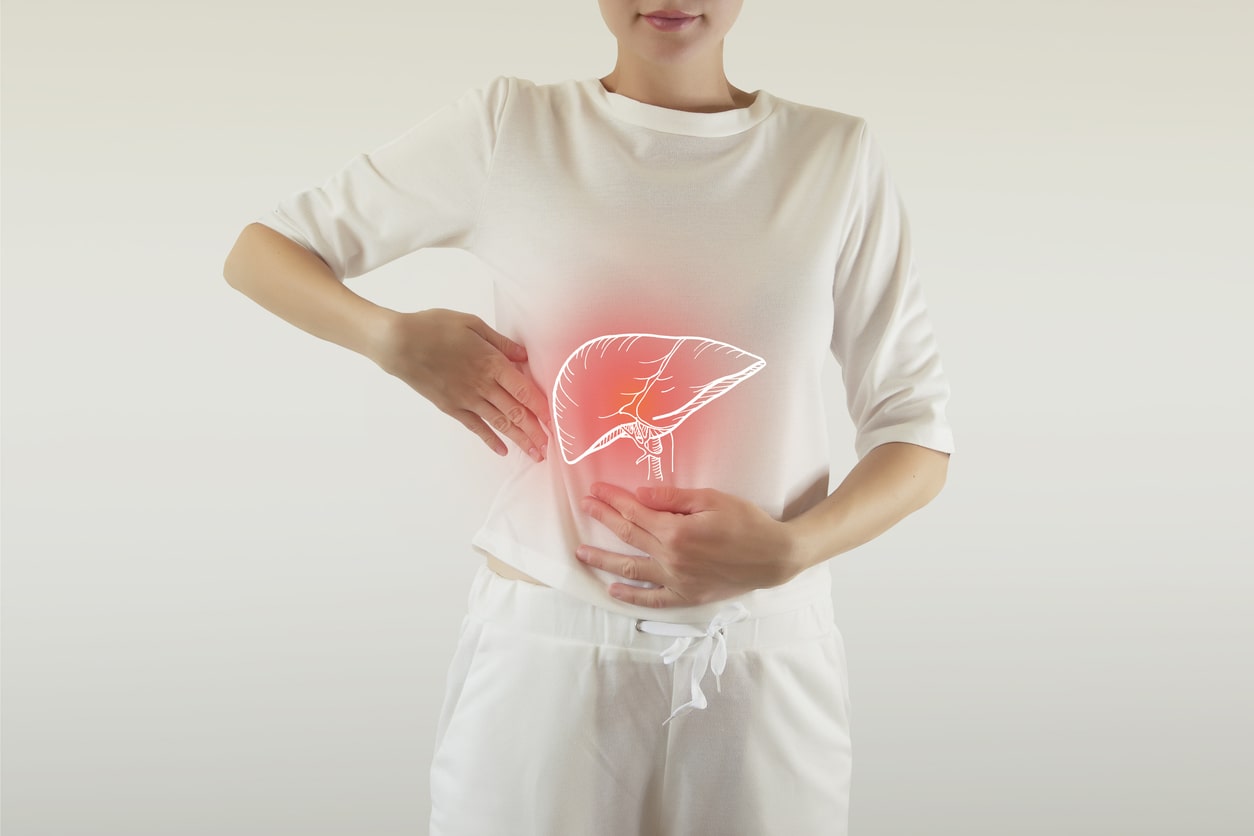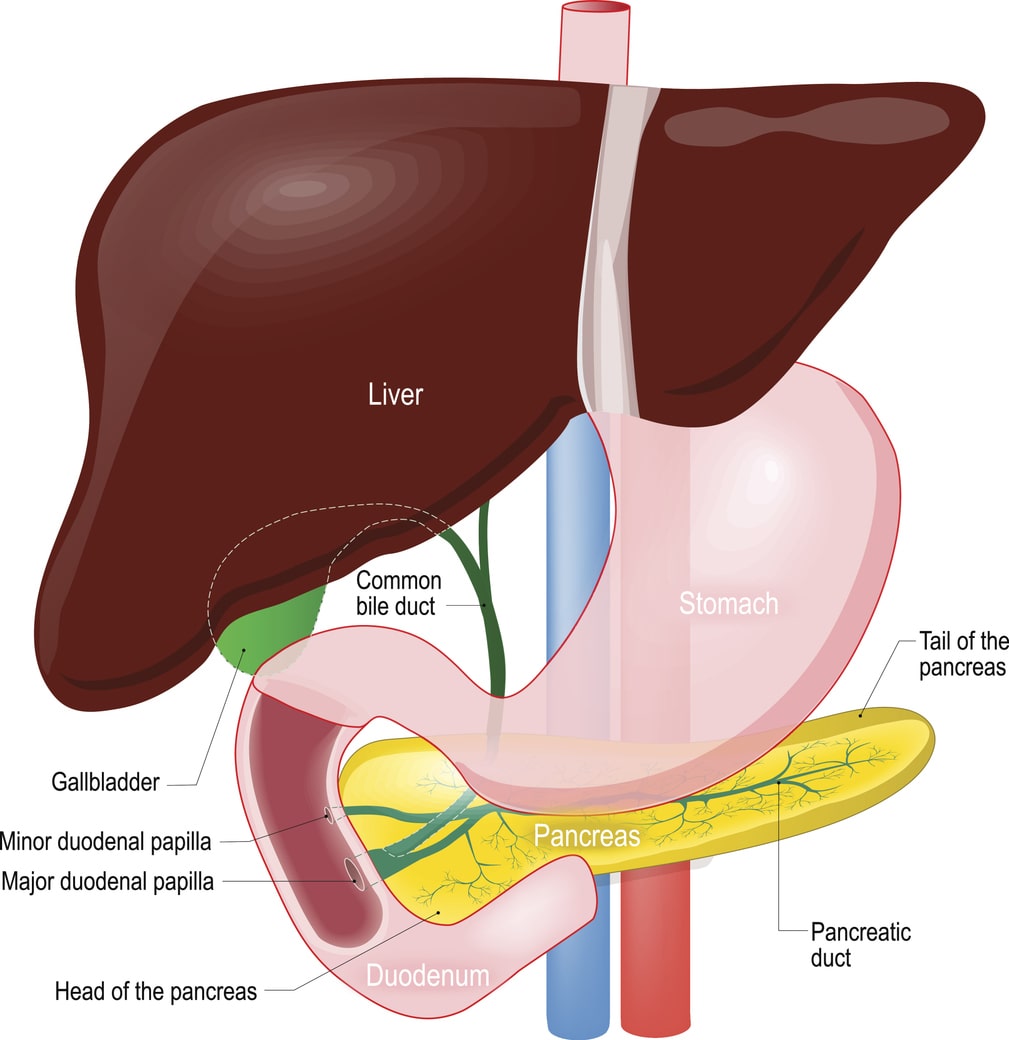
Understanding Biliary Disease, Diagnosis, and Treatment
Biliary disease encompasses various conditions affecting the bile ducts, liver, and gallbladder. These conditions can disturb bile flow, causing specific symptoms and complications.
Understanding biliary diseases is essential, as it is needed for early detection, effective management, and, in the end, restoring health. Whether you seek to enhance your knowledge or gain a deeper understanding of these conditions, we will equip you with valuable insights into navigating the complexities of biliary disease.
Understanding Biliary Disease
The biliary system plays a crucial role in digestion and waste elimination. To understand biliary disease fully, you must know the definition and function of bile ducts, as well as the causes and types of biliary diseases.
The bile ducts are a network of tubes that transport bile from the liver to the small intestine. Bile, a digestive fluid produced by the liver, aids in the breakdown and absorption of fats and helps eliminate waste products from the body. The biliary system includes the liver, gallbladder, and bile ducts. Together, they make bile, store it, and transport it.

Symptoms and Diagnosis
Recognizing the signs and symptoms of biliary disease is vital, as it allows for early detection and quick treatment.
Early Signs and Symptoms
Some people with biliary disease may have no symptoms. Others may have various symptoms, including:
- Abdominal pain: Discomfort or sharp pain in the upper right area of the abdomen.
- Jaundice: Yellowing of the skin and eyes due to an accumulation of bilirubin.
- Digestive issues: These may include nausea, vomiting, and changes in bowel movements.
- Fatigue: A persistent feeling of tiredness and low energy levels.
- Unexplained weight loss: Significant and unintentional weight loss without dietary changes.
It is important to note that symptoms may vary depending on the type and stage of biliary disease. Consulting your GastroMD physician for an accurate diagnosis is crucial.
Diagnostic Tests for Biliary Disease
To diagnose biliary disease, your doctor may use various tests and procedures. These include:
- Blood tests: These tests help evaluate liver function and identify abnormalities.
- Imaging studies: Imaging studies, such as ultrasounds, CT scans, or MRIs, can provide detailed bile duct images and detect structural problems.
- Endoscopic Retrograde Cholangiopancreatography (ERCP): ERCP combines endoscopy and X-rays. It is used to see the bile ducts and find the cause of blockages or problems.
- Liver biopsy: A small sample of liver tissue is extracted and examined under a microscope to assess for any signs of damage or disease.
These tests and a detailed look at the patient’s history and symptoms help diagnose biliary disease.
Common Biliary Diseases
Biliary disease encompasses various conditions that affect the bile ducts, gallbladder, and liver.
Gallstones
Gallstones are a common biliary condition that affects millions of people worldwide. These hard deposits form in the gallbladder or bile ducts and can block bile flow, leading to symptoms like abdominal pain, jaundice, and digestive issues. Treatment options range from lifestyle changes to surgery, depending on how severe the gallstones are and how they affect the patient’s well-being.
Bile Duct Cancer
Bile duct cancer, also known as cholangiocarcinoma, is a rare but severe form of cancer that affects the bile ducts. It can occur in the liver (intrahepatic), at the liver hilum (perihilar), or outside the liver (distal). Bile duct cancer often causes jaundice, abdominal pain, and weight loss. Early detection and treatment are crucial in improving prognosis and patient outcomes.
Biliary Atresia
Biliary atresia is a congenital condition that primarily affects infants. It involves the lack or malformation of the bile ducts, which leads to bile flow blockage and liver damage. Biliary atresia is a leading cause of liver transplants in children. Quick diagnosis and surgery, like the Kasai procedure, are required to manage this condition and save liver function.
Infections
Infections caused by bacteria or viruses can occur in the biliary system. They can lead to inflammation and damage of the bile ducts. These infections can arise due to obstructions, weakened immunity, or spread from nearby organs. Once established, they can impede bile flow, causing abdominal pain, fever, and jaundice. Untreated biliary infections may worsen, leading to severe conditions like cholangitis or liver abscesses. These conditions pose significant health risks. Quick diagnosis and antimicrobial treatment are critical because they manage these infections, ease symptoms, and stop long-term problems.
Understanding these common biliary diseases enables your doctor to effectively diagnose and develop tailored treatment plans.

Treatment Options
Doctors treat biliary disease based on many factors. These include the specific condition, its severity, and a patient’s overall health.
Medical Management
Medical management plays a crucial role in treating biliary disease, particularly in cases such as primary biliary cholangitis or cholangitis associated with infections. Your doctor may prescribe medications to alleviate symptoms, reduce inflammation, or manage complications.
These medications may include:
- Ursodeoxycholic Acid: This medication helps improve bile flow and reduce liver inflammation in conditions like primary biliary cholangitis.
- Antibiotics: Antibiotics are prescribed to combat bacterial infections and prevent their spread in cases of cholangitis.
Regular monitoring of liver function and medication adjustments based on a patient’s response are essential components of medical management.
Surgical Intervention
Surgery may be needed for cases where biliary disease can’t be managed by medicine alone. Some standard surgical procedures for biliary disease include:
- Cholecystectomy: The surgical removal of the gallbladder, often performed to alleviate symptoms associated with gallstones.
- Biliary Drainage: This procedure involves placing a stent to relieve bile duct obstructions and restore normal bile flow.
- Liver Transplantation: In severe cases of biliary disease, such as end-stage liver failure, a liver transplant may be the only viable treatment option.
The choice of surgery depends on the condition and the patient’s circumstances. Surgeons and medical teams collaborate to determine the most appropriate approach for each patient.
Complications of Biliary Disease
Biliary disease, if untreated or poorly managed, can cause complications. It can also significantly impact a patient’s long-term prognosis. Patients need to understand the possible problems and the outlook for biliary disease.
- Liver Cirrhosis: Prolonged inflammation and scarring may lead to liver cirrhosis, a condition characterized by the progressive loss of liver function.
- Biliary Obstruction: Bile duct obstructions can result in the buildup of bile within the liver, leading to jaundice and liver damage.
- Cholangitis: Bacterial infections within the bile ducts can cause cholangitis, a potentially life-threatening condition if left untreated.
- Liver Failure: Advanced stages of biliary disease may result in liver failure, necessitating immediate medical intervention, such as a liver transplant.
Early detection, appropriate treatment, and regular monitoring can help mitigate the risk of complications and improve long-term outcomes for patients with biliary disease.
Prevention and Lifestyle Tips
Some biliary diseases may be unpreventable, but a healthy lifestyle can lower the risk of getting them and improve well-being.
- Balanced Diet: Consume a diet rich in fruits, vegetables, whole grains, and lean proteins while limiting processed foods, saturated fats, and added sugars.
- Regular Exercise: Engage in regular physical activity to maintain a healthy weight, promote cardiovascular health, and reduce the risk of liver-related complications.
- Alcohol Moderation: Limit alcohol consumption to moderate levels or avoid it altogether, as excessive alcohol intake can contribute to liver damage.
- Weight Management: Gallstones have been linked to obesity, so it is important to maintain a healthy weight to reduce your risk.
- Hydration: Stay well-hydrated to promote proper bile production and help prevent the formation of gallstones.
- Infection Prevention: Practice good hygiene, including regular handwashing, to reduce the risk of bacterial infections that can lead to cholangitis.
Contact Us
If you or a loved one worry about biliary health, seek treatment soon. Our highly skilled team at GastroMD is ready to offer personalized care and expertise. Our compassion and understanding can provide the support and guidance you need to navigate these challenging conditions. Contact GastroMD today to take the first step in prioritizing your biliary health.



